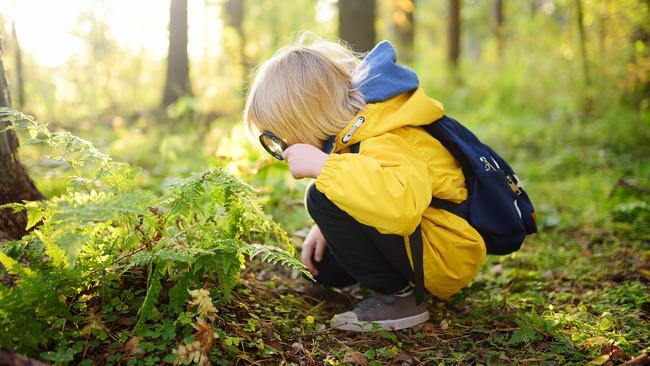The key to a good life is being curious about the world
I’m mistrustful of those without curiosity. Who never ask questions, quest, doubt; who never seek out the world beyond the safety of familiar borders.

It’s a curious exercise, driving through the vast new road tunnels under the city. Motoring unimpeded through sparse and cavernous underground highways that strip your world of obstacle, threat, variety, for many kilometres. Your usual driving experience is all about the stop-start cram of life, of other humans. Welcome to the future. Where those who can afford it are siloed, removed from the mucky mess of living in close proximity to everyone else and all in the interests of getting where we want to go, faster and with less fret.
The soullessness of these anodyne subterranean thoroughfares is striking, alienating. Way above you are shops and houses and honking horns, street tangles and traffic lights, pedestrians and pets. Meanwhile, this. Sound muted. Colour muted. Vividness muted. Sky removed and not a scrap of green in sight. Up there is ragged, busy, bustling life constantly snagging your attention in all its rawness and spontaneity. Slow and shouty and impatient, yes, but beautiful in its infinite variety. Down here, the utterly known. A world stripped of curiosity.
I’m mistrustful of those without curiosity. Who never ask questions, quest, doubt; who never seek out the world beyond the safety of familiar borders. Curiosity is aligned with life itself – if we don’t have curiosity we never progress. We exist in aspic, in a life of stasis; not shaking the field grass. “Children, be curious,” Graham Swift wrote in Waterland. “Nothing is worse (I know it) than when curiosity stops. Nothing is more repressive than the repression of curiosity. Curiosity begets love. It weds us to the world. It’s part of our perverse, madcap love for this impossible planet we inhabit. People die when curiosity goes.”
And meanwhile, this very modern impulse to remove all obstacles from our existence. The helicopter parent repeatedly bulldozes the path for their coddled child, unaware of the damage they’re doing. The skin on the ageing woman is injected into icy perfection, betraying all her insecurities. AI writes calmly grammatical and soporifically perfect prose, sending us into sleep. And the subterranean tunnel whizzes us under the vast city, removing the dynamic essence of a metropolis from the experience.
In all of these instances we miss what it is to be messily, imperfectly alive. In our hurry to create the path of least resistance we remove the important lessons in fallibility, fragility and failure. Vulnerability extends a hand, it teaches and connects, because we’re all fragile in some way. And in our quest for certainty – for efficient, machine-like perfection – we’re eliminating the wonder of curiosity.
“I think, at a child’s birth,” Eleanor Roosevelt declared, “if a mother could ask a fairy godmother to endow it with the most useful gift, that gift would be curiosity.” These vast tunnels under our cities encourage us to absolve ourselves of curiosity. Of the mess of life, in our quotidian hurry to get somewhere faster. The aim: to remove all obstacles from our path in the quest for machine-like perfection. But perfection is icy, boring; humans flinch from it. We cannot warm to the perfect, nor relate – teenage girls, take note.
And so I slip once again into the sparse and sanitised underworld, so absent of nature and vivid, messy, shouty, grubby, imperfect city life. Yet this is what we desire, is it not? The politicians say it is, and bulldoze vast swathes of housing and green to get us to this expedited place. So quick, so clean, so soulless. So scrubbed of the medicine of nature, for it’s a tonic to be among the trees, to see them and smell them. Meanwhile, in our siloed world we travel the sparse tunnels, slightly bored, unengaged with life. The propulsion is towards seamlessness. Perfection. Control. It’s a bland bland world, and a lot of Sydney to miss. As Mr Swift said, curiosity weds us to the world.




To join the conversation, please log in. Don't have an account? Register
Join the conversation, you are commenting as Logout